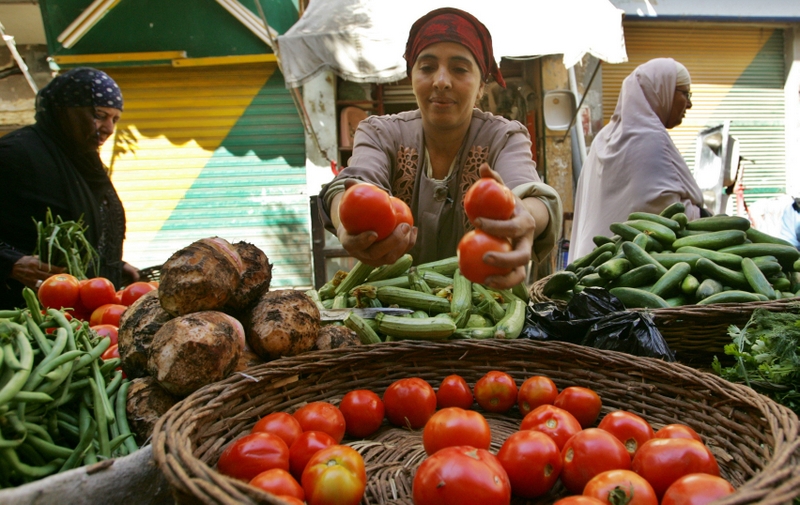The annual inflation rate registered its first decline on an annual level to 10.7% after rising for six consecutive months, closing at 11.7% in 2015, according to the Central Agency for Public Mobilisation and Statistics (CAPMAS) in a press release issued yesterday.
At the same time, the monthly inflation rate increased slightly by 0.1%. The decline, on both levels, was caused by the increase of vegetables prices during the second half of 2015, according to Economist at EFG-Hermes Mohammad Abu Basha. He noted that Hermes expectations stood at 10.5%.
Vegetable prices recorded an increase of up to 36.5% during the period from July to October before they began to stabilise in the last two months. Abu Basha explained that vegetables are seasonal, thus their prices fluctuate. The Central Bank of Egypt (CBE) excludes vegetables and fruit from core inflation indicators to give a real visulisation of prices.
Vegetable prices recorded a decline of 13.2% during the period between November and January, making them the main factor in driving inflation towards relative stability.
According to the statement of CAPMAS, the price of vegetables decreased by 5.0%, meat and poultry rose by 2.6%, grains and bread by 1.5%, traditional goods and services by 6.1%. The annual inflation rate in December recorded 11.9% in 2015, while the monthly inflation rate stood at 0.1%.
Abu Basha believes this month will be the last for inflation to decrease or stabilise. Inflation will go through a series of hikes in the upcoming months, amounting to 10-12%. The recent decisions taken by the government will reduce imports and raise customs, in addition to the government’s intention to impose value-added tax in the coming period.
“Imports restrictions will have the least impact on inflation, while VAT will cause the greatest impact,” Abu Basha said. “Depreciation of the pound by CBE will also affect inflation.”
The government, especially CBE and the Ministry of Industry and Trade, recently took a number of decisions that will limit the import, such as limiting imports to registered trademarks and increasing tariffs on some imported goods.
At the same time, Prime Minister Sherif Ismail announced that the government intends to present the value-added bill to parliament in the upcoming period to be imposed in 2016.
“CBE itself, in the last meeting of the Coordinating Council, said it targets inflation in the coming period,” he said. “This is an implicit recognition of the prediction of inflationary wave.”
Abu Basha said another interest rate increase is likely to happen in the upcoming period, provided that prices continue to go up or the pound continues to decline against the dollar.
CBE raised the interest rate by 0.5% in the last meeting of the Policy Committee, bringing the deposit and lending rates to 9.25% and 10.25% respectively. Abu Basha said the decision was due to the increasing inflation rate during the last few months of 2015.
According to EFG Hermes, the average inflation in 2016 is expected to reach 9.5%. However this figure may be revised in case VAT is applied. “The average will then go up,” he said.
Core annual inflation increased to 7.73% this January compared to 7.23% in December 2015. Meanwhile monthly inflation in January declined to 0.98% versus 0.10% in December.




